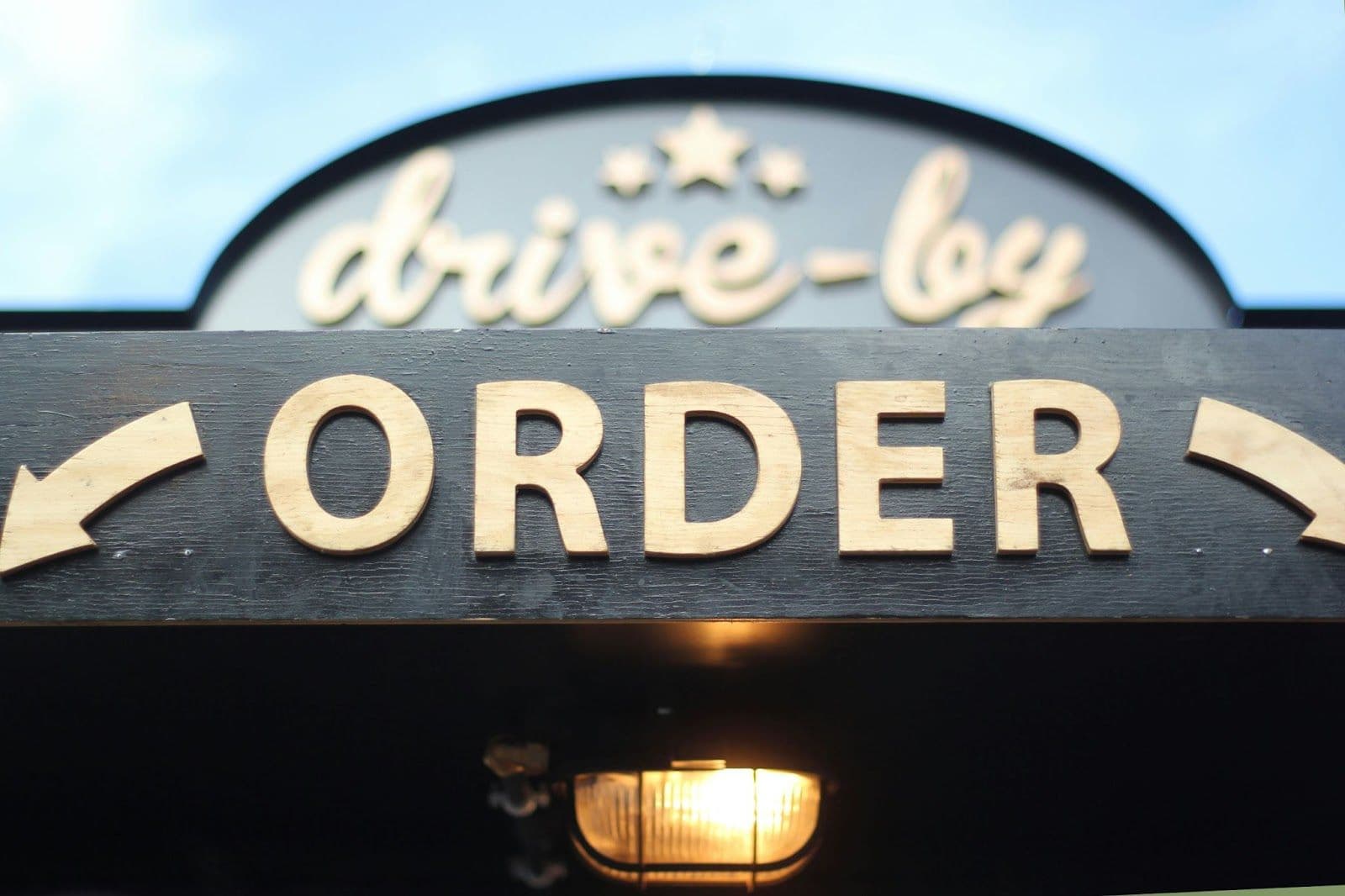ISFJ Compatibility: Best & Worst Matches for the Loyal Nurturer
What Is the ISFJ Personality Like?

The ISFJ personality, also known as the Defender, is compassionate and always happy to help those in need. In addition to being reliable, they’re highly practical individuals with a keen eye for detail and a strong work ethic. Driven as they are, these people often excel in all areas of their interest.
With introverted sensing (Si) as their dominant cognitive function, ISFJs perceive the world subjectively by comparing the present moment with their past experiences. They rely on what they’ve previously learned, finding comfort in tried-and-true methods rather than experimenting. As such, Defenders prefer familiarity over novelty, often shying away from innovation.
However, this doesn’t mean they’re completely closed off to change—if it has a practical purpose, ISFJs will gladly step outside their comfort zone to explore it.
Still, driven by Si, Defenders highly value predictability and stability. That’s why they’re conscious of their physical health and exceptionally organized and neat—keeping things in check brings them a sense of comfort.

Having said that, the ISFJ is by no means a rigid recluse. In fact, they’re far from it—this personality type is the most extroverted introvert. This isn’t surprising, having in mind their auxiliary extraverted feeling (Fe), which makes them more welcoming of other people and their opinions.
Additionally, Fe makes Defenders the caring, thoughtful, harmony-loving people they are. They’re highly in tune with the emotions of others and considerate of them when making decisions.
Because of their focus on other people, ISFJs tend to struggle with processing their own feelings. As a result, they can become self-sacrificing and repressed, piling up negative emotions and manifesting them through passive aggression.
Due to this, ISFJ relationships require reciprocity—if their partner doesn’t treat them with the same kindness they provide, the Defender can get frustrated and bitter.
On the other hand, they thrive when showered with the attention they deserve, especially expressed through words of affirmation, as this is the preferred ISFJ’s love language. Defenders light up when their partners openly appreciate their efforts.
4 Important Factors that Determine ISFJ Compatibility
Several factors determine ISFJ’s compatibility with other personality types, including communication styles, emotional needs, conflict-resolution techniques, values, and goals.
Let’s analyze these factors in detail to get a clear picture of their influence on an ISFJ’s love life:
#1. Communication Styles
As empathetic and altruistic people, ISFJs often take on the listener’s role in communication. They’re genuinely interested in what others have to say, so they listen attentively and strive to understand the feelings and needs behind someone’s words. As perceptive as they are in social situations, they take mere seconds to recognize the emotions of those around them.
Due to their sensing personality, Defenders are detail-oriented, often basing their communication on concrete examples and personal experience. They’re also highly practical, focusing on specific information rather than abstract ideas. Coupled with their excellent people skills and compassionate nature, this trait makes them great advisors in times of crisis.
Since they genuinely care about other people, ISFJs are typically polite and soft-spoken in discussions. They choose their words carefully to pass on their message respectfully and not hurt anyone’s feelings.
However, due to their introverted nature, these individuals are generally reserved in communication with people they don’t know well. Because of this, Defenders share their deepest thoughts openly only with those closest to them.
#2. Emotional Needs
ISFJ’s emotional needs run deep, although they tend to have difficulties expressing them, opting to focus on other people’s feelings instead. These individuals crave meaningful connections centered around stability and mutual trust. Thanks to this, they’re nurturing, committed, and loyal to their partner, prioritizing their happiness and making sure their needs are met.
Needless to say, ISFJs are givers, but that doesn’t mean they don’t need anything in return. In fact, one of their core emotional needs is to be valued and appreciated for their efforts. They work quietly behind the scenes to make their partner happy, so open reassurance can go a long way in making them feel seen and understood.
Given their love of stability, Defenders need emotional security in relationships. Because of their sensitive nature, this personality type craves a safe space where they can share their feelings without being judged. Therefore, emotionally distant and flaky partners with whom they don’t know where they stand make them feel insecure.
#3. Conflict Resolution
Since ISFJs prioritize harmony in all their relationships, they often shy away from conflict, fearing they might hurt someone’s feelings if they approach it head-on. It’s for this reason that they can be passive-aggressive—the simmering tension of unresolved issues inside them can lead to them feeling quietly resentful.
Due to their conflict avoidance, Defenders can come across as passive during a confrontation, focusing on the other person’s perspective to de-escalate the situation. However, when something contradicts their personal values, they can become assertive and voice their opinions.
Still, even in such instances, ISFJs approach conflict with caution. They express their point of view gently and respectfully, explaining it through details and personal experience. Their goal is to reach a compromise, so they’re likely to offer practical solutions that satisfy everyone involved as much as possible.
In the wake of the conflict, however, these individuals often need time alone to process their feelings and gather their thoughts.
#4. Values and Goals
ISFJ’s most prominent values include stability, harmony, loyalty, and unity. Despite being introverted, this personality type easily bonds with other people, striving to form meaningful relationships with them. However, they’re careful about who they let into their circle, as they’re not interested in superficial connections.
Defenders are also very traditional in romantic relationships. Namely, both male and female ISFJs tend to assume typical gender roles, which is why they generally don’t see eye to eye with unconventional personality types.
These people have strong, deeply rooted moral beliefs and highly value honesty, kindness, and responsibility. Moreover, due to their judging personality trait, they thrive on rules and routines, organizing their activities in detail rather than going where the wind takes them.
The main goal for most Defenders is to serve humanity—they strive to make a positive, tangible impact on the lives of those they care about.
While they’re unlikely to hog the spotlight, ISFJs’ industrious nature and hard-working attitude often lead them to positions of authority. However, they’re not the ones to let power go to their heads—they stay humble and use it to improve the lives of those around them.
4 Best Romantic Matches for ISFJs

The best matches for ISFJs are the personality types who share some of the Defender’s core values. Whether it’s their traditionalist view of romantic relationships, preference for structure, or sensitivity, an ISFJ will bond with them.
These types are usually found in the sensing and feeling (SF) group, although Defenders can also find their match among the thinking (T) and intuitive (N) personalities.
Without further ado, let’s examine an ISFJ’s compatibility with their best matches:

ESFJ (The Consul)
The ESFJ personality type, also known as the Consul, is the Defender’s extroverted counterpart. They share ISFJ’s reliable and responsible nature, practicality, and caring attitude toward those around them. This comes as no surprise since these two types have the same cognitive functions but in different order.
They also have a lot of common causes, such as community work, mentoring, and volunteering. Like ISFJs, Consuls are very empathetic, always striving to help and support those around them in any way they can. Since both personalities are natural givers, they’re highly likely to meet each other’s emotional needs, as both tend to prioritize their partners’ happiness and well-being.
Additionally, these two types have the same traditionalist outlook on romance. They’re both driven by their strong sense of responsibility and social expectations, so they often take on conventional gender roles in relationships. For this reason, the male ESFJ personality is likely the best match for ISFJ females—his protective attitude accentuates her innate femininity.

ISTJ (The Logistician)
ISTJ (Logisticians) and ISFJ compatibility isn’t surprising, as these two types share three out of four letters. Both personalities have a keen eye for detail and a preference for stability and structure. Moreover, like Defenders, Logisticians are highly responsible and dependable, often acting as protectors of their partners, families, and friends.
The similarities between those two don’t end there. They have a conventional worldview, which makes it easy for them to organize their daily lives and household responsibilities as a couple. They’re also both incredibly loyal, striving for stable connections based on mutual trust rather than random flings and short-term relationships.
The ISFJ’s and ISTJ’s shared preference for introversion only contributes to their compatibility—since both value solitude, they’re very respectful of each other’s need for time alone.
However, these two personalities have opposing approaches to decision-making. While ISFJs rely on their emotions, ISTJs favor logic. Still, this difference doesn’t have to be an obstacle—if they’re open to learning from one another, they can use it to their advantage.

INFJ (The Advocate)
The INFJ personality, often dubbed the Advocate, has a lot in common with the Defender, which is evident from their three shared letters. Not only are they both introverts, but they’re also both loyal, compassionate, and altruistic. In fact, it’s not uncommon for these two types to bond over a shared cause and join forces to make a positive impact on the world.
Advocates and Defenders also share a desire for harmony in relationships, although they perceive it somewhat differently. ISFJs are driven by their traditional values, abiding by the rules and striving to maintain peace in their surroundings. Meanwhile, INFJs consider themselves part of a bigger picture and often challenge conventional norms to right the wrong.
This difference stems from their opposing judging functions—the ISFJ is sensing (S), while the INFJ is intuitive (N). This means that the former focuses on practical details, while the latter has more abstract interests. Still, if they use this difference to enrich each other’s perspectives, they can grow both individually and as a couple.

ESFP (The Entertainer)
The ESFP type, commonly nicknamed the Entertainer, is a sensing and feeling (SF) personality, like the Defender. However, while Entertainers are social butterflies with a taste for spontaneity, ISFJs are private individuals who like predictability.
These differences don’t have to create a gap between them, though, as both personalities are highly empathetic people likely to consider one another’s needs.
Additionally, it’s precisely their differences that make these two drawn to each other. ESFPs are often attracted to ISFJs because of their thoughtfulness and warmth. In turn, Defenders appreciate Entertainers’ fun-loving nature and generosity.
When they get together, they’re likely to help one another grow as people. For example, an ESFP can bring an ISFJ out of their shell while learning from them how to be more grounded.
One example of such a partnership is Leonard’s (ISFJ) and Penny’s (ESFP) relationship from The Big Bang Theory. Their bond only gets stronger as the show progresses, proving that overcoming differences between partners can be both emotionally and intellectually rewarding.
4 Worst Matches for ISFJs

The worst matches for ISFJs are purely logical types with an out-of-the-box mindset who prefer abstract ideas and theoretical possibilities to facts and practical thinking. These typically belong to the intuitive and thinking (NT) personalities, as they have vastly different points of view and emotional needs from those of Defenders.
Let’s explore ISFJ’s compatibility with their worst matches:

ENTP (The Debater)
The ENTP type, or the Debater, is the direct opposite of the ISFJ personality. They’re extraverted, intuitive, thinking, and perceiving, thus contrasting the Defender’s private, sensing, and emotional nature centered around order and stability.
ENTPs are sociable, often in the spotlight where their confidence shines bright and others can see and hear them clearly. Meanwhile, ISFJs are rather reserved until they get to know a person, preferring to spend their time with a small group of trusted friends to being the center of attention.
Debaters have unconventional ideas and aren’t afraid to use them to challenge the status quo and break social norms. On the other hand, Defenders are traditionalists who adhere to social expectations and feel uncomfortable around people with unusual perspectives.
Plus, due to their confidence and logical nature, ENTPs like to debate (hence the nickname), often coming across as confrontational and insensitive. Needless to say, emotional and conflict-averse ISFJs are generally put off by such behaviors.

ENTJ (The Commander)
ENTJs, often nicknamed Commanders, share no cognitive functions with ISFJs, so their low compatibility comes as no surprise. Despite their good social skills and generally good intentions, Commanders aren’t naturally compassionate. In fact, their lack of empathy can make them seem cold and even cruel.
Unsurprisingly, the sensitive Defenders would be wary of them, especially because of ENTJ’s open contempt for emotional people. Even when they use their underdeveloped feeling function, Commanders are prone to changing their opinion of someone from one extreme to the other. This doesn’t sit well with ISFJs, as they need stability in their interactions with others.
To top it all off, despite their dominant nature, ENTJs like to be challenged by their partner. Unlike Defenders, they don’t shy away from confrontation—on the contrary, they almost seem to enjoy it. Such an attitude can easily disrupt the harmony ISFJs crave so deeply, leaving them feeling drained and hurt.

INTP (The Thinker)
The INTP personality, or the Thinker, has no traits in common with the ISFJ besides their shared preference for introversion. Due to their intuitive nature, INTPs are open-minded individuals who enjoy exploring outside their comfort zone. In contrast, Defenders like their comfort and generally find it in planning, order, and structure.
As highly analytical and logical individuals, INTPs value objectivity, constantly pursuing logical truths about the world. Meanwhile, ISFJs perceive the world subjectively, relying on their personal experiences to understand their surroundings.
Additionally, Thinkers’ nontraditional approach to creative ideas would likely be too “out there” for the rule-following Defender. In turn, INTPs could find ISFJs’ conformist nature uninspiring and even dull.
The fact that these two types have opposing worldviews means they don’t naturally understand each other. While this doesn’t always have to be a problem, Thinkers’ impatience with people who don’t automatically get their perspective would frustrate both them and Defenders.

INTJ (The Mastermind)
INTJs, also known as Masterminds, are often drawn to ISFJs and vice versa. Defenders find INTJs’ intellect and mysterious aura magnetic, while Masterminds admire ISFJs’ warmth and devotion. However, when the rose-colored glasses come off, these two are likely to realize they don’t have much in common beyond the initial attraction.
In spite of being introverted, Defenders have excellent people skills. On the other hand, INTJs are far more interested in ideas and concepts than people. Their communication style is typically straightforward to the point of bluntness, which can be quite irritating to a feeling personality type such as the ISFJ.
Masterminds’ aloof demeanor when it comes to emotions can easily upset Defenders, who, however, are unlikely to address the issue out of their fear of conflict. Moreover, INTJs are prone to criticizing others, even those closest to them. So, although they have good intentions, their attitude can hurt ISFJs’ feelings.
4 Key Tips for Improving ISFJ Compatibility
The key tips for improving ISFJs’ compatibility with other personalities include fostering open and transparent communication, nurturing emotional security, respecting routine, and aligning values.
Let’s explain these techniques in detail:
#1. Open and Transparent Communication
Open and transparent communication is key to a healthy relationship, but ISFJs usually need time to open up. For this reason, it’s important to create a safe space for them to express their emotions and thoughts without worrying about being judged. Showing appreciation for their insights can encourage them to get out of their shell.
Due to their sensitive and reserved nature, Defenders often need reassurance in their relationships, so open expressions of genuine empathy can help them feel at ease.
ISFJs are likely to shut down if they sense their opinions are undervalued. Therefore, you should show genuine interest in what they have to say without interrupting them or acting dismissive.
Additionally, be mindful of your tone and body language, as Defenders are highly sensitive to non-verbal cues.
#2. Nurturing Emotional Security
Nurturing emotional security in a relationship with a Defender requires consistent effort. These individuals thrive in stable environments where they feel safe, which is why you should make sure to offer emotional reassurance to your ISFJ partner.
Since ISFJs highly value practical support, which they themselves provide for their loved ones. Therefore, to earn their trust, you need to follow through on your promises and show up for them when they need your help. Otherwise, your reassuring words will sound hollow, making it hard for a Defender to rely on you.
That being said, Defenders are natural givers, which makes it hard for them to express their own needs. Regularly checking in with them about how they’re feeling can go a long way in building trust and fostering reciprocity.
#3. Respecting Routine
ISFJs crave stability in their relationships, so creating routines and adhering to them can give them a sense of predictability they need to feel secure.
Moreover, while their preferred love language is words of affirmation, they also highly value quality time. Nothing can make a Defender happier than a partner who plans regular date nights and organizes their mutual activities.
However, refrain from surprising them with a trip or showing up at their door unannounced. Instead, consult them when planning events and outings out of respect for their own routine. Allowing them to have a say in scheduling activities meets their need for control over their environment.
#4. Aligning Values
Defenders cherish their principles and morals deeply, so aligning values with them is crucial for high ISFJ compatibility with other types. You can start by openly sharing your core values and discussing topics such as family, career, and personal ethics. After all, ISFJs appreciate meaningful talk that prompts them to share their points of view.
Additionally, such conversations can help you understand each other better and identify shared values. When you do, incorporate them into your daily life and decision-making. For example, if both of you place great importance on your careers, prioritize supporting one another in work-related matters.
As for the areas where your values don’t align, make sure to honor their perspectives and voice your own respectfully. Defenders don’t shy away from compromise, so rest assured they’ll be happy to meet you halfway.
Final Thoughts
ISFJ compatibility isn’t a universal rule determining who Defenders get along with, as that depends on everyone’s individual experiences. However, it reveals who they’re most likely to have a good relationship with based on their personality traits and values.
Knowing who their best matches are, in theory, can help ISFJs build genuine connections with their partners based on stability, trust, and mutual respect.
It’s worth mentioning that ISFJ compatibility affects friendships, too. Defenders should remember this so that they can have even more meaningful rapport with their friends.
In fact, all personality types should keep it in mind—they can understand themselves and their relationships with those close to them better if they take the 16 personality test.

Noah Chen is a data scientist specializing in behavioral analytics and psychometrics. He combines psychology and data to improve the accuracy and reliability of personality assessments. With a background in cognitive science and machine learning, Noah designs models that turn user responses into meaningful insights. When he’s not working with data and analytics, he enjoys strategy games and volunteering at local tech education programs.

Subscribe to our newsletter
Stay updated with the latest news, tips, and exclusive offers delivered straight to your inbox.
FAQs
What makes ISFJs fall in love?
Do ISFJs get attached easily?
How do you tell if an ISFJ likes you?
Your Authentic Self Awaits Discovery
In a world that often demands conformity, understanding your unique personality traits becomes an act of rebellion.
The insights you are about to gain have the power to reshape your entire life trajectory. Are you ready to meet the real you?
Start Your Discovery Journey




